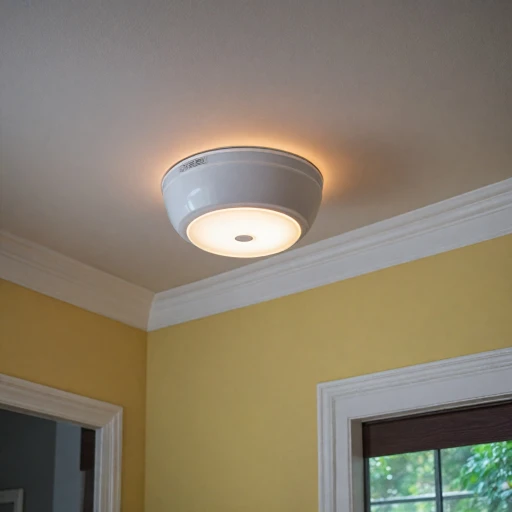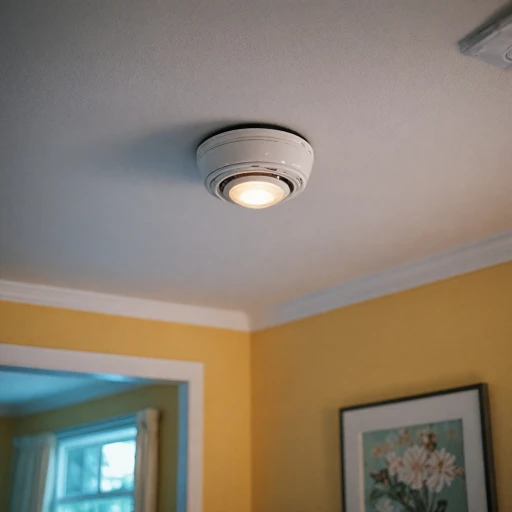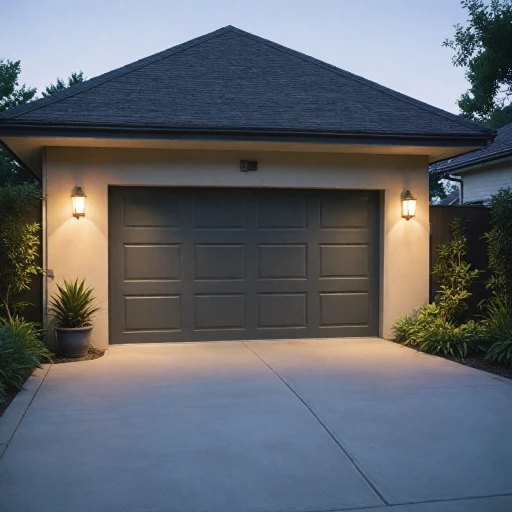
Understanding Driveway Detectors
The Role of Driveway Detectors in Home Security
Driveway detectors play a crucial role in enhancing home security systems. They act as a preliminary alert mechanism, notifying homeowners about any movement or activity in their driveways. This proactive approach offers a layer of protection, providing an opportunity to assess the situation and respond appropriately.
How Driveway Detectors Work
Primarily, driveway detectors function through sensors that can detect motion or magnetic disturbances. These sensors are integral to the alert system, as they trigger alarms or notifications through a receiver. Many systems offer compatibility with both wireless and wired setups, accommodating different property layouts and preferences for ease of installation and connectivity.
Advantages of Using Driveway Detectors
- Early Detection: They provide earlier detection of vehicles or people entering the property, allowing better preparedness.
- Enhanced Security: Integrating with broader alarm systems can substantially enhance overall security measures.
- Variety of Technologies: Various technologies, such as motion sensors, magnetic probes, and solar-powered options are available, catering to distinct needs and environments.
- Comprehensive Monitoring: Long-range systems offer thorough coverage, ensuring no activity goes unnoticed.
Whether you're interested in a wireless driveway alert system or seek advice on pairing these detectors with alarm systems, understanding the technology's mechanics can guide you towards selecting the right solution for your home security enhancing patio door security with effective lock solutions.
Types of Driveway Detectors
Exploring the Varied Choices for Driveway Detection
When it comes to securing your driveway, selecting the right type of driveway detector is crucial. Whether you're looking for traditional or more advanced options, there is a plethora of driveway alarm systems available to match different needs and budgets.- Magnetic Probe Sensors: These are perfect for detecting large metal objects, such as vehicles, passing over the driveway. A magnetic probe is buried alongside the driveway, activating an alert when a car is detected. This technology minimizes false alarms triggered by animals or a windy day.
- Wireless Driveway Alarms: With the demand for seamless and straightforward installation, wireless driveway alerts are quite popular. These solutions are easy to install with no need for hardwiring, offering flexibility and long range functionality. A wireless motion detector or outdoor motion sensor can alert homeowners via a receiver inside the house.
- Solar-Powered Systems: Reducing the need for continuous maintenance, solar-powered options harness the sun’s energy, ensuring that your driveway alert system remains operational without the need for regular battery changes.
- Long Range Systems: For properties with an extended driveway, long range detection is key. Long range systems ensure that no matter the distance, any motion or vehicle presence will activate the motion detector, triggering an alert signal to the receiver.
Integration with Home Security Systems
Integrating Driveway Detectors into Your Security Ecosystem
Integrating driveway detectors can significantly enhance your existing home alarm system by providing an added layer of protection. When these systems detect motion, they can trigger alarms and notify you through a wireless alert system, alerting you of any potential intrusions or movements in your driveway. One of the key benefits of linking these systems is the seamless communication between devices, which allows for greater coverage. For instance, a wireless driveway alert system can be connected to other sensors in your home, providing real-time updates and alerts on suspicious activities. Consider the compatibility of driveway alarms with your current security setup. Many modern systems support easy integration, even with third-party devices, offering customizable solutions that sync with your lifestyle needs. Some crucial elements to consider when integrating include:- Alarm Systems: Ensure that your driveway alarm is compatible with your existing alarm system. This could mean selecting a solution that offers flexible integration options.
- Wireless Connectivity: Opt for a wireless driveway system to reduce installation complexity and avoid unsightly wires. This also allows for greater versatility in positioning your sensors.
- Motion Detectors and Magnetic Probes: Depending on your security needs, you may choose between motion detectors and magnetic probes for vehicle detection.
- Alert Receivers: Choose a receiver with ample range to ensure you receive alerts without interruption, even from a long distance.
Key Features to Consider
What to Look for in Powerful Driveway Detectors
Driveway detectors can significantly enhance your home security by providing an added layer of protection and awareness. When selecting the right technology for your needs, it's vital to focus on several key features that ensure both the efficacy and efficiency of your chosen alarm system. Here's what you should consider:- Wireless Capabilities: Wireless driveway detectors offer flexibility with installation, as they remove the need for intricate wiring. This makes them a preferred choice for many homeowners looking to streamline their setup process.
- Range and Coverage: The range of a system dictates how far away a moving object, like a vehicle or person, can be detected. Long-range sensors are ideal for properties with extended driveways. You’ll find that many systems, like the Dakota Alert, are designed to cover significant distances.
- Sensor Type: Driveway sensors come in various types, including motion sensors, magnetic probes, and others. Magnetic probes are particularly useful for detecting metal objects (like cars), whereas motion detectors can sense broader movement, making them versatile for general security purposes.
- Alert System: Look for a comprehensive alert system that can notify you through multiple channels, such as a receiver or mobile app alerts. This ensures that you can respond promptly no matter where you are.
- Power Source: Solar-powered systems are environmentally friendly and reduce dependency on traditional power sources. Their solar capabilities ensure they remain functional even during power outages, providing continuous vigilance.
- Durability and Weather Resistance: Given that these systems are primarily designed for outdoor use, robust durability is essential. Choose devices with a high resistance to various weather conditions to ensure long-term reliability.
- Pricing and Budget: While it’s tempting to immediately opt for the cheapest option, balance price against feature set. Quality comes at various price points, and opting for a mid-range product could provide a more satisfactory combination of cost and functionality.
Installation Tips and Best Practices
Optimal Setup and Techniques for Driveway Detectors
Implementing driveway detectors effectively can enhance your home security system. Here are some practical tips and best practices to ensure smooth installation and maximize their efficiency.- Positioning the Sensors: Strategic placement of motion sensors or magnetic probes is crucial. Ensure they cover the entire driveway area you need for detection while avoiding any obstructing structures or vegetation that might block their range.
- Testing Range and Area Coverage: Before finalizing the installation, test the device's range and detection capabilities. Long-range systems like the Dakota Alert provide extensive coverage, so verify the system alerts you for the intended distance.
- Power Supply Considerations: Decide between wired and solar-powered options. Wireless driveway alarms offer flexibility and are easier to install without needing to run cables, whereas solar-powered units can be more eco-friendly and cost-efficient, with no need for regular battery changes.
- Syncing with Alarm Systems: To optimize your alert system, sync the driveway alert with your existing home alarm systems. This integration helps create a comprehensive security framework that notifies you of any potential intrusions with both visual and audio cues.
- Receiver Placement: The receiver’s location is fundamental for timely alerts. Place it where you spend most of your time, like the living room or office. If your property is large, consider additional receivers.
- Secure Mounting: Use durable mounting brackets and hardware to secure the sensors in place. This ensures they are stable and less likely to be tampered with or moved accidentally.
- Regular Maintenance: Regularly clean and inspect your driveway detectors to ensure they're free from debris that might affect performance. Check battery levels if not using solar or wired.













